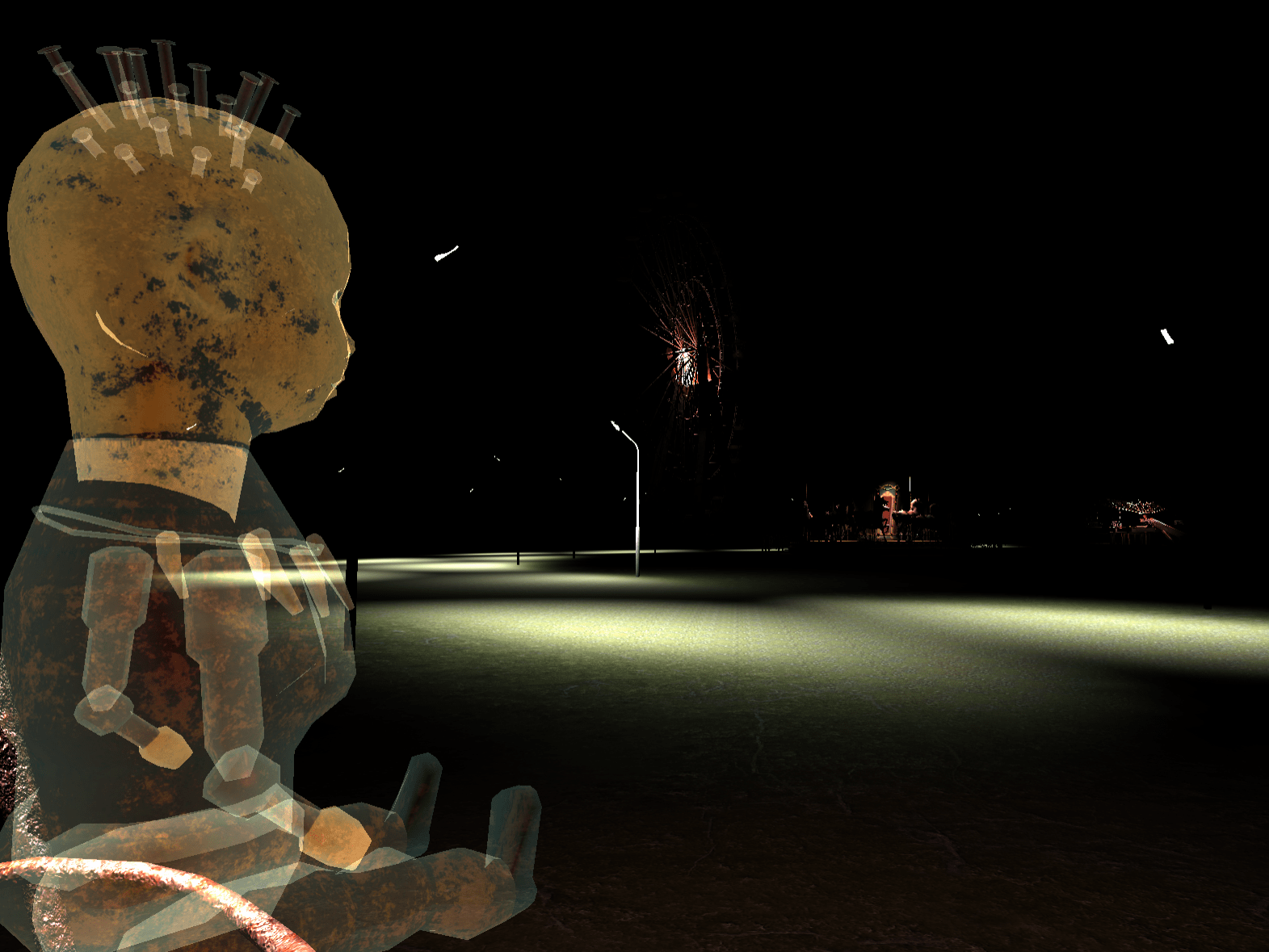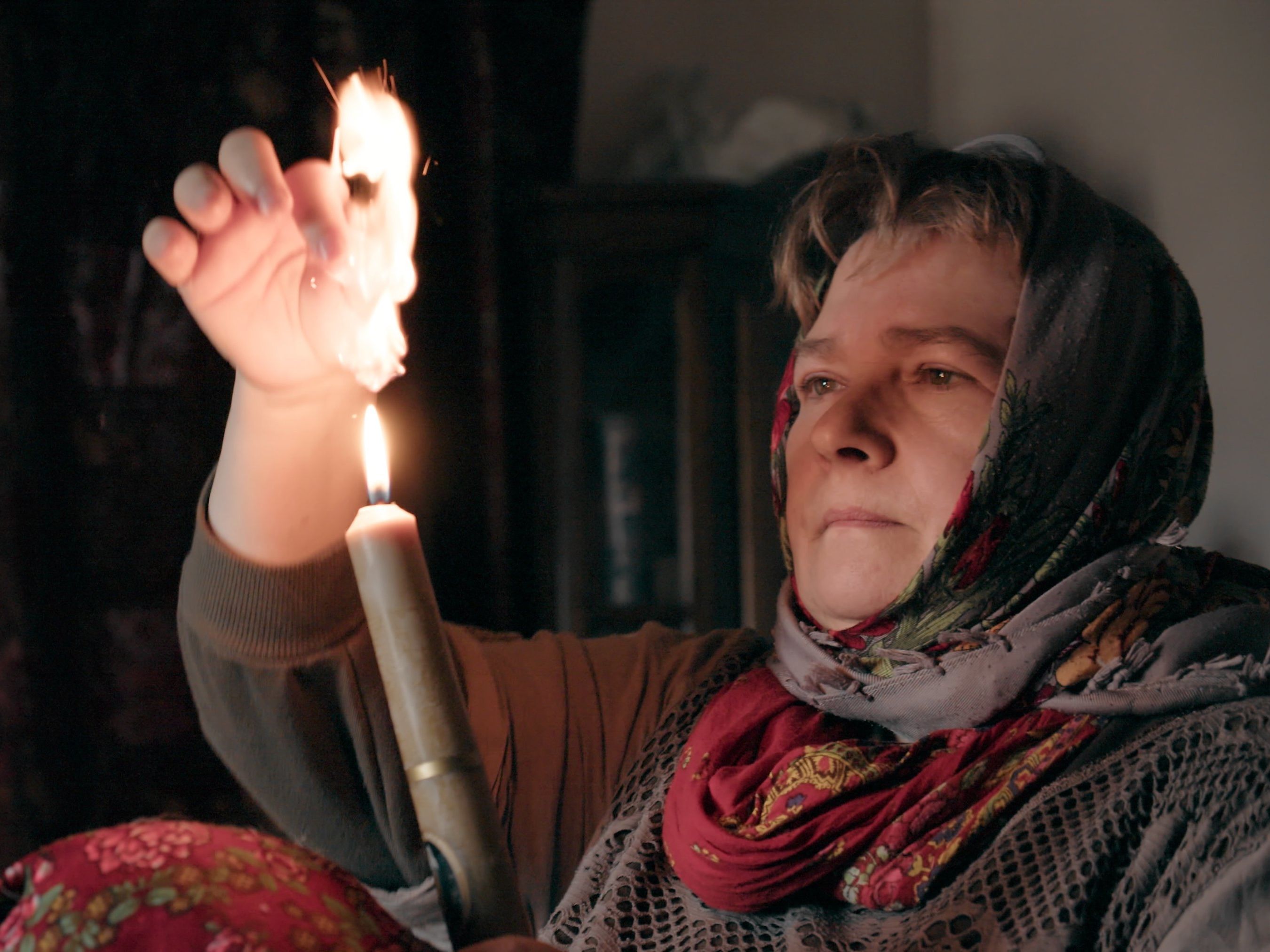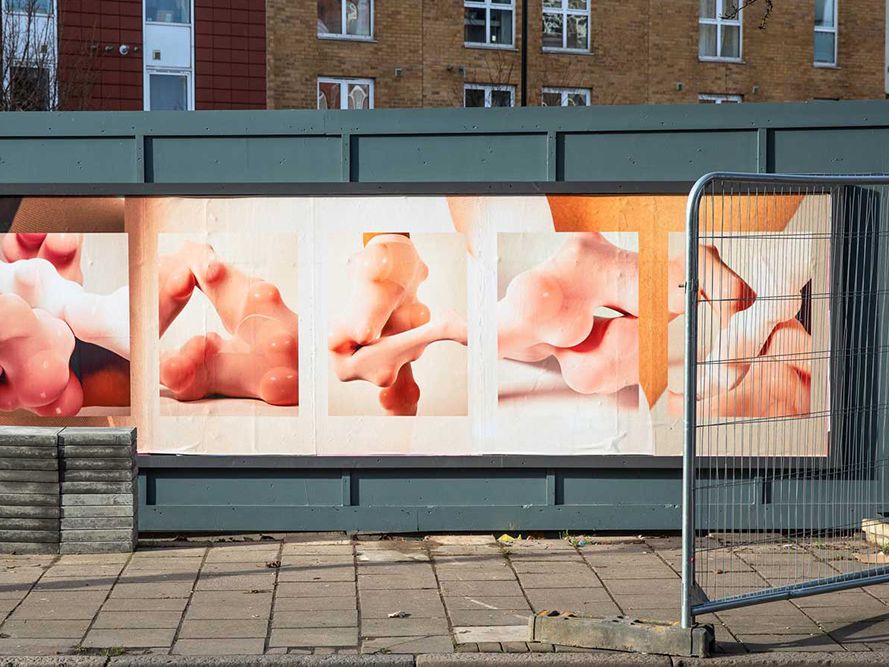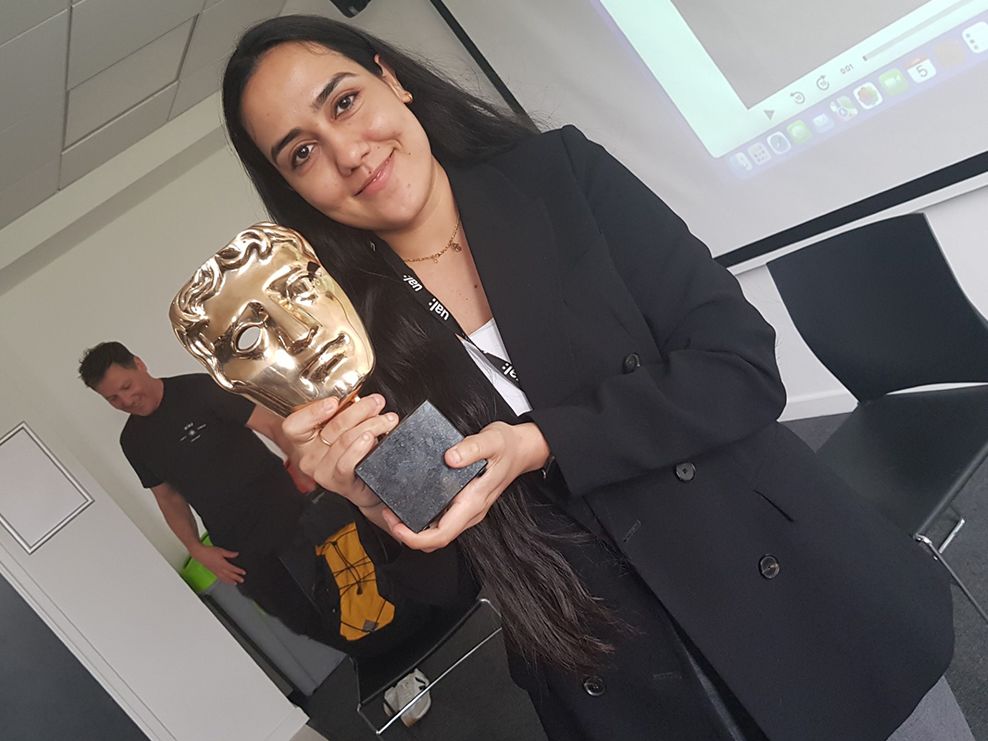
MA Documentary Film alumni make an impression at Sheffield Doc Fest and the Royal Television Society Awards
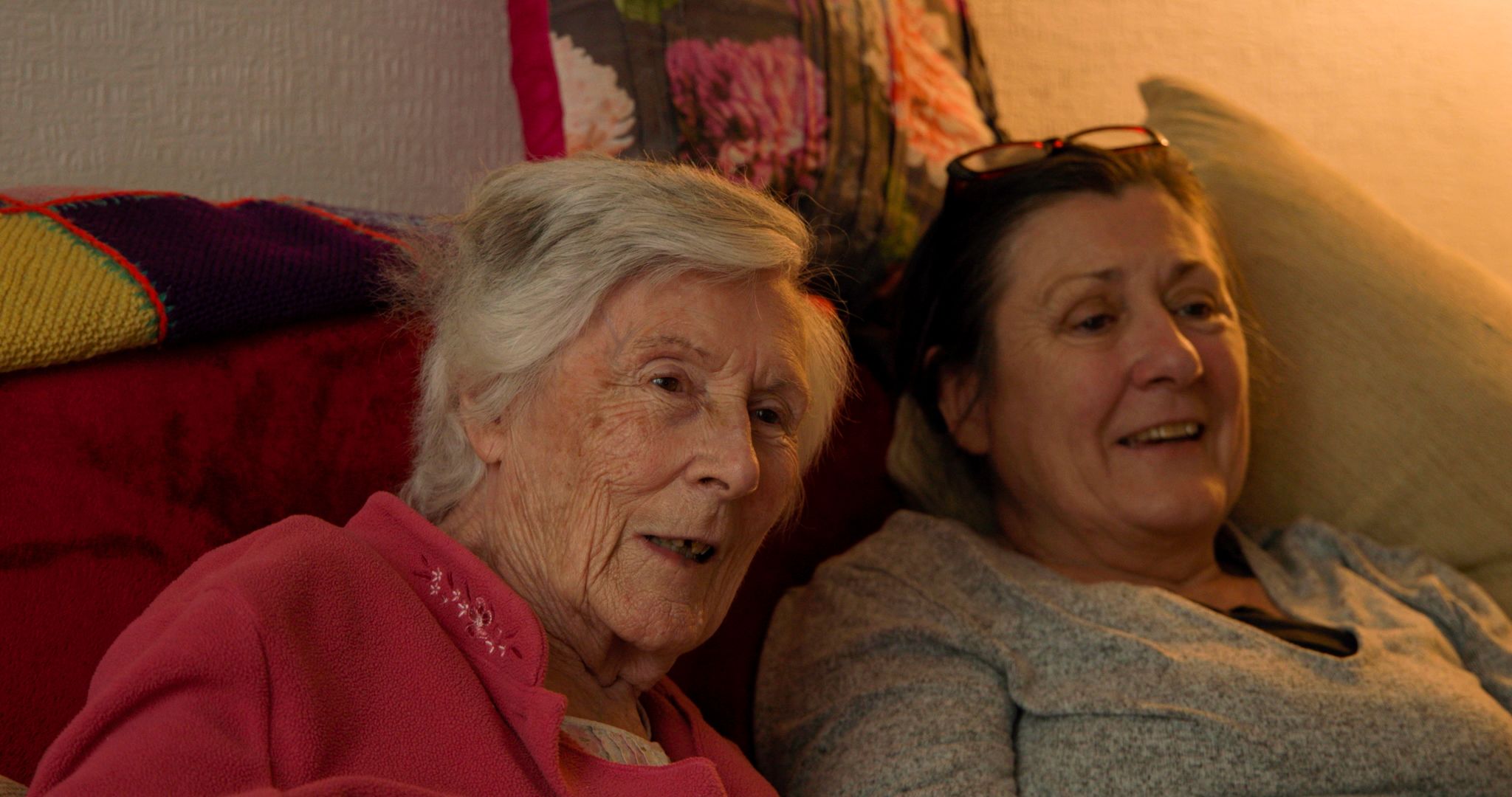
- Written byHenry Smith
- Published date 15 October 2024

Two London College of Communication alumni have achieved success in the documentary film circuit, receiving nods at 2 of the foremost documentary awards in the country. Blu Smith and Qiqi Hou flew the flag for MA Documentary Film with their recognition at Sheffield Doc Fest and the Royal Television Society Awards.
Sheffield Doc Fest is the UK’s leading documentary festival across forms like television, film, immersive technology and art. Blu Smith won the Sheffield Doc Fest Make Film History Challenge, which asked filmmakers to weave together narratives through supplied archive footage.
Originally from the USA, Blu examined race histories inherent in the British film archive material through her documentary Colour Separation Overlay, with her American background giving her a unique outside perspective on British culture.
Meanwhile, 2022 graduate Qiqi Hou made the shortlist at Royal Television Society’s Student Film Awards, tapping into her own experiences living in China during the era of the One Child Policy and its legacy amidst the backdrop of an aging population crisis.
Qiqi’s film My Mum Rita tells the story of 68-year-old Louise and her 92-year-old mother Rita, who is living with dementia. The film deals with Rita’s rapidly deteriorating condition, as well as the difficult choices Louise is forced to make as time goes on.
Iris Wakulenko, Senior Lecturer for MA Documentary Film, spoke glowingly of Qiqi and Blu’s achievements at major awards this year. “The MA Documentary Film programme, led by Jeremy Williams, encourages students to develop their own voices in their creative practices,” she said.
“It is enormously encouraging when graduates like Qiqi Hou and Blu Smith succeed in expressing the concerns that interest them in the aesthetic and methods appropriate to the subject.”
To learn more about their successful films, career journeys and future plans, we spoke to Qiqi and Blu. Their answers are detailed below.

Tell us about your creative practice. Do you explore particular themes, or use particular tools and techniques?
Qiqi: I find great joy in connecting with people and learning about their stories. Engaging with different viewpoints and perspectives is not only fascinating, but also essential to my growth as a creative. This interaction with diverse experiences enriches my creative practice, allowing me to explore new themes and ideas with a deeper understanding.
Blu: My practice is a bit of collage, I see film as a textured, layered process that involves multiple disciplines and resources to evoke emotion. I lean into the theme of memory and nostalgia to explore my identity and the relationships around me.
How did you first become interested in the field of documentary film?
Qiqi: Documentary filmmaking has profoundly shaped my understanding of the world. Growing up in southeast China, where societal norms often defined a woman's future in terms of marriage and motherhood, I struggled to envision a career path for myself. When I had the opportunity to work at a production company in China, creating documentaries for Hunan Television, I was privileged to collaborate with a diverse range of people and document their stories. I was both fascinated and inspired by their lives – it was then that I realised documentary filmmaking was something I truly wanted to pursue.
Blu: I didn't ever really fashion myself as a big documentary person, but when it was time to do my MA, I had a choice between MA Film and MA Doc. I chose Documentary because you were able to work on your own project. Little did I know it was such an important decision because it made me a researcher, leading me down my current path into my PhD.
What are your favourite memories of studying at LCC?
Qiqi: Definitely my time working on my graduation film, My Mum Rita.
Blu: I wasn't too social, but I did really love the teaching staff, Jeremy and Iris were really so wonderful, compassionate, kind, laughed at my jokes, kept me motivated and – most of all – made me feel seen as a filmmaker. I feel very lucky to have met them and to still have their support.
What have you been working on since graduating? What are you doing now?
Qiqi: Since graduating last year, I’ve worked on several productions, including BBC’s Escape to the Country, BBC Songs of Praise, BBC Bitesize and a drama directed by award-winning filmmaker Penny Woolcock. Currently, I work as an assistant producer at CTVC, where I work on various productions and support the running of BFI Film Academy courses for young people.
In July 2024, I won a production grant from the Duemila30 Film Festival for a short fiction film that I’m developing with a few collaborators. We’re currently working on the script, and I’ll be directing and editing the film. Additionally, I’m in the early stages of developing my first feature film, which will explore my family's story.
Blu: I have been in mostly planning mode for next year and doing production, but I made a film for a competition at Sheffield Doc Fest and currently about to do a short talk at the BFI about it. I am also a Lecturer now at Central Saint Martins (CSM) and London College of Fashion (LCF), working in a film and media context – that's been really cool.

Tell us about your award-recognised film. What was the inspiration behind your project, and how did you develop your ideas further?
Qiqi: As someone born during China’s One-Child Policy era – a generation now expected to care for their aging parents – I was inspired to explore the experience of adult children who find themselves in this role, particularly focusing on unpaid carers in the UK. This personal connection motivated me to delve deeper into the often-overlooked challenges and dynamics these caregivers face. I developed the project by conducting thorough research and interviewing individuals who embody this experience, allowing their stories to shape the film's narrative.
Blu: CSO was a metaphorical play on words in relation to a Blue Peter special about green screen technology. Though when I heard it called that, I immediately thought of segregation and used that to tell a story that was slightly rhetorical about immigration policies in the 60s.
Why did you decide to enter your film for awards?
Qiqi: My course leader, Jeremy Williams, recommended that Mary Davies (Film Festival Coordinator and Lecturer at LCC) submit My Mum Rita to the RTS Student Television Awards, along with other outstanding films from my year.
Blu: I saw the open call just a few days before the deadline and just decided to go for it. I hadn't applied to anything in while – I just thought to myself: why the hell not? I shot, edited and submitted it all within 3 days!
How did you create your film? What was involved in the process?
Qiqi: After 3 months of research and searching for contributors, I met Louise, who became the central character in My Mum Rita, at a choir workshop. We had a quick chat at a coffee shop and I began filming her story shortly afterward. While my wonderful course mates occasionally helped with sound recording on location, I primarily worked by myself – directing, producing, operating the camera and recording sound. At the time, I was living in Elephant and Castle, so on shoot days, I would carry a large camera bag and monopod as I traveled to Northwood Hills (in northwest London, an hour away by public transport). It was during this period that I discovered my passion for filmmaking.
I couldn’t have made this film without my contributor Louise. She supported me at every step, always saying yes and helping to bring the film to life whenever I had an idea to shoot something.
I filmed over 14 days, capturing more than 70 hours of footage. For our course, the film had to be under 20 minutes, so I spent 5 months in LCC’s edit suite, editing the material. Each week, I presented a completely different cut and sought feedback from my course leader, Jeremy Williams, my lecturers, and my course mates. The first cut was around 35 minutes long and I still remember the look on my friend’s face when I asked her to watch it. Just before the school's private screening, I showed Louise the final film and it brought her to tears. At that moment, I felt relieved and proud that I had fulfilled my promise to help her tell her story – a story about the life of an unpaid carer.
Blu: The challenge was for the archives for education competition so it had a heavy focus on archive. You were given access to loads of archival film to reinterpret into a short film of your own. It was really interesting to see all the old footage and think of how to give it new life and meaning.

What does it mean to you to be recognised at such prestigious awards?
Qiqi: After being shortlisted for the Grierson Award for Best Student Documentary in June 2023, receiving a nomination for the Royal Television Society Student Awards was a moment of immense pride for me. Among all the nominated and winning films, My Mum Rita was the only one directed, produced, filmed and edited by a single person without a crew. I’m incredibly grateful to my contributor, Louise, for trusting me to tell her story; to my course leader, Jeremy Williams, for his unwavering support and guidance; and to my wonderful tutor, lecturers and course mates for their encouragement. Their belief in this film made this achievement possible.
Blu: I'm sort of shy about my work, so not many people even know about my award. I think it's really cool. Another filmmaker I admire reminded me to celebrate but not to give too much power to those things when you win – because then you do the same when you lose. He reminded me that just by making something, I’ve already kind of won at life and everything else is just vibes. I often think about that.
How has this experience helped you to develop as a practitioner?
Qiqi: Creating this film helped me uncover my talent for filming and editing. In particular, the extensive editing process sparked a deep passion for storytelling. This experience has significantly contributed to my growth as a practitioner, enhancing both my technical skills and my ability to craft compelling narratives.
Blu: It just reminded me that there is a million and one ways to make a film, and I'm excited to continue to find my way as my practice develops.
What’s next for your creative practice?
Qiqi: My Mum Rita won 2 awards at the Duemila30 Film Festival: Best Short in the Pathways to Wellbeing category and Best Short overall for the 2024 edition, as voted by participating filmmakers. At the festival, I connected with few filmmakers and we pitched a new project, receiving a production grant to create a short fiction film about a young female fisherman and her father. We are currently developing the script, and I will be co-directing and editing this project, which will be my first fiction film and is scheduled to screen at the Duemila30 Festival in 2025.
Additionally, I joined Caochangdi Workstation, an independent space for grassroots Chinese filmmakers founded by Wu Wenguang in Beijing in 2005. I am also in the process of developing my first feature film about my family.
Blu: I'm not sure. I am hoping to make many more films for installations during my PhD. Maybe I’ll write a script at some point!
Finally, do you have any tips for anyone looking to study MA Documentary film at LCC?
Qiqi: Be honest and don't be afraid to ask for help. The lecturers at MA Documentary Film are experienced and supportive, ready to assist you in bringing your first film to life.
Blu: Go for it! You'll realise that 90% of the practitioners you admire are all quietly documentarians.
Related Links
- Discover MA Documentary Film at LCC.
- Learn more about our Screen School.
- See more projects from LCC students at UAL Showcase.
